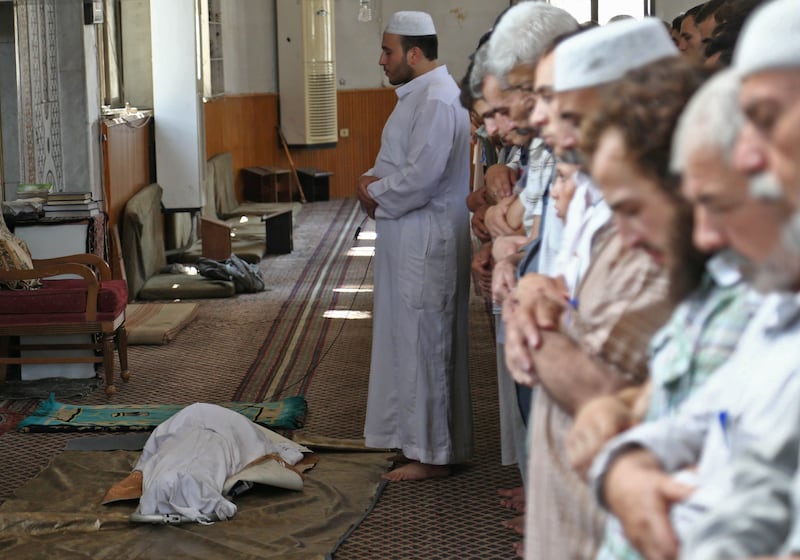The Syrian army and its allies seized control of at least 30 kilometres of Syria's border with Jordan from rebels in an attack on Thursday.
A military media unit run by Hizbollah, a close ally of the Syrian government, said the army and its allies had gained control over all checkpoints and posts on the frontier in Sweida, one of four Syrian provinces that border Jordan.
Rebel groups, some of them backed by western and Arab states, still control much of Syria's southwestern border with Jordan and Israel.
Sweida province was not included in a US-Russian brokered ceasefire that took effect in nearby areas of the south-west in July.
Said Saef, spokesman for the western-backed rebel group Martyr Ahmed Abdo brigade, said Thursday's attack came from two sides in Sweida's east countryside. "Most of the eastern Sweida countryside is now in the hands of the regime," he added.
Read more: With rosaries in their hands, Christians flee Raqqa and ISIL
The Syrian army advanced to the border and retook posts it abandoned in the early years of the country's war when rebels took over large parts of southwestern Syria.
"They are now on the Jordanian border and back to outposts they had evacuated early in the conflict," said Mr Saef.
Another rebel spokesman said the army gains were helped by a sudden pullback by the Jaish Al Ashair rebel group, which is backed by Jordan and had been responsible for patrolling that stretch of the border.
A Syrian military source said the army and its allies had taken more than 30 kilometres of the border, and described the advance as a "big success".
Elsewhere in Syria, government bombardment on two areas included in fragile "de-escalation zones" killed four people on Thursday, a monitoring group said.
One person was killed in air strikes on a safe zone in central Syria, and another three died in shelling on a zone near the capital, according to the Britain-based Syrian Observatory for Human Rights.
Seven others were wounded in the regime shelling that killed three civilians in a town in the Eastern Ghouta zone, a rebel bastion near Damascus, the Observatory said.
"The shelling hit the town of Hammuriyeh early on Thursday, killing a woman, a man, and a child," said Observatory head Rami Abdel Rahman.
The attack came a day after government shelling killed five civilians and wounded 10 more in the nearby town of Kfar Batna, according to the Observatory.
Air strikes have also pummelled rebel-held parts of the Jobar district of Damascus and the adjacent district of Ain Tarma.
Eastern Ghouta is one of four "de-escalation zones" announced in May by opposition backer Turkey and regime allies Iran and Russia after talks in Kazakhstan.
Three of the zones have been agreed so far: in Eastern Ghouta, the northern parts of central Homs province, and in Syria's south.
The fourth zone, in northwestern Idlib province, has yet to be implemented.
Syrian government air strikes on Thursday killed a man in the ceasefire zone in Homs, the Observatory and a resident said.
The raids were the first since that truce was announced one week ago.
Abbas Abu Osama, a resident of the town of Al Houla, said six strikes had hit his hometown by Thursday afternoon.
"We have our first casualty, killed in an air strike in Tal Dahab" near Al Houla, he said.
Mr Abdel Rahman confirmed that a man was killed in a raid but could not specify whether he was a rebel fighter or civilian.
* Additional reporting by Agence France-Presse





